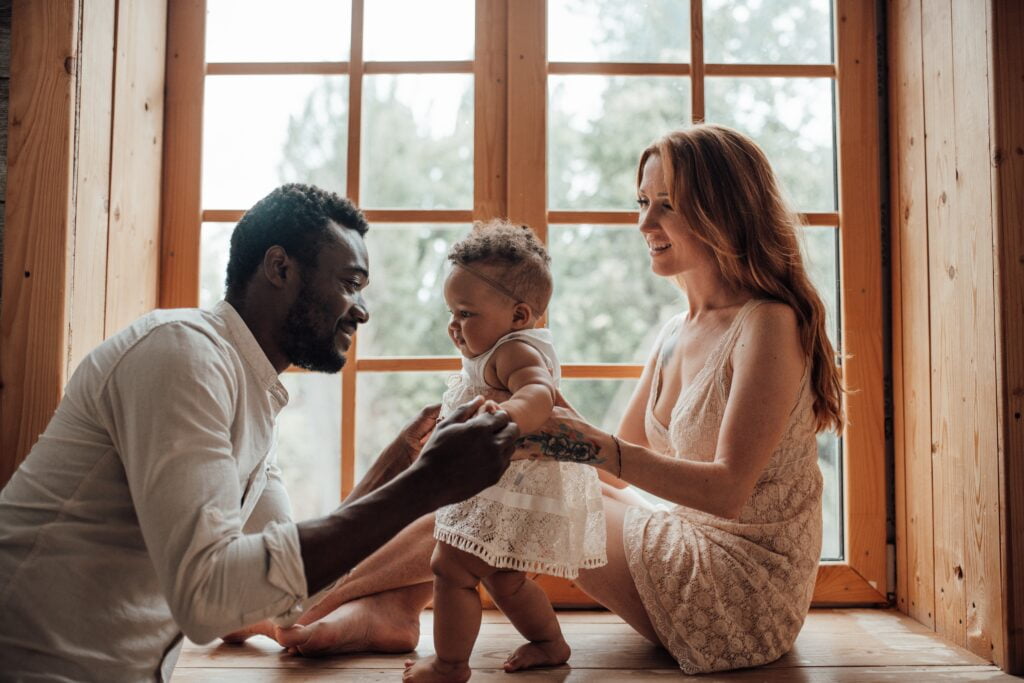Table of Contents
ToggleHey there, friends! Let’s chat about something close to our hearts: co parenting counseling. If you’re like me, juggling life post-divorce or separation and trying to keep things smooth for the kiddos, you’ve probably heard about this. Co parenting counseling – it’s a game changer, a real lifesaver in the choppy seas of shared parenting.
Now, let me break it down for you. A co-parenting counselor is like that wise friend who knows just what to say when the parenting road gets bumpy. They’re not here to take sides; think of them more like a referee in this new parenting arena we find ourselves in. They help us navigate through disagreements, suggest strategies that work, and remind us that it’s all about making life better for our little ones. And let me tell you, their insights are nothing short of a touchdown for our family dynamics.
Diving deeper, coparenting therapy is all about teamwork. It’s like learning the ropes of a new sport where the goal is a happy, balanced home for our kids. This therapy is about mastering the art of communication, ironing out those pesky conflicts, and remembering that it’s not about scoring points against each other, but about winning together for our children’s sake.
As we wrap up here, keep in mind: co-parenting counseling isn’t about who’s right or wrong. It’s about joining forces for the brightest future of our kids. Stay tuned, because we’re just getting started on unraveling the essentials of this journey. Believe me, it’s an adventure worth embarking on for the sake of our families.

Key Benefits of Counseling for Co Parents
Alright, let’s dive right into the meat and potatoes of this thing: the real perks of co parenting counseling. Trust me, it’s more than just sitting in a room talking about our feelings.
Improving Communication Skills
First up, let’s talk communication. It’s like the oil that keeps the engine of co-parenting running smoothly. In counseling, you learn to cut through the noise and really hear each other. It’s not just about talking; it’s about communicating with purpose. You learn to express your concerns without stepping on toes, and understand your co-parent’s perspective without losing your cool. It’s like learning a new language, but the language of effective, respectful co parenting.
Navigating Conflict Resolution
Now, onto navigating conflicts. Let’s face it, disagreements are part and parcel of co parenting. But counseling teaches you to tackle these head-on, without them turning into a full-blown family feud. You learn strategies to de-escalate, negotiate, and find common ground. It’s like having a playbook for those tough moments, turning what could be a showdown into a constructive conversation.
As we close this chapter, remember, these benefits are just the tip of the iceberg. There’s a whole world of strategies from experienced coparenting therapists waiting to be discovered, each one offering a new perspective on how to make this co-parenting journey a success. Trust me, these insights are worth their weight in gold when it comes to creating a stable, loving environment for our kids.
Strategies from Experienced Coparenting Therapists
Moving along in our co-parenting journey, let’s chat about some gold nuggets of wisdom from those who’ve been in the trenches: experienced coparenting therapists. These folks are like the wise old sages of the co-parenting world, and they’ve got some strategies up their sleeves that can seriously turn the game around.
Establishing Boundaries and Respect
First off, boundaries and respect – these are the cornerstones. Imagine you’re building a house; without a solid foundation, the whole thing’s shaky, right? Well, it’s the same with co-parenting. Therapists emphasize setting clear boundaries. This isn’t about building walls between you and your co-parent. It’s more like setting ground rules for a sports game – it keeps things fair and respectful. You learn to say, “Hey, this works for me,” and “Nope, that crosses a line,” all without starting World War III.
And respect, that’s the key. It’s like remembering that even though you’re not on the same team anymore, you’re still playing the same game. It’s about acknowledging each other’s roles and feelings, and handling them with care. It’s not always easy, but man, does it make a difference!
Co Parenting Plan Development
Now, about developing a co parenting plan. Think of this like drafting the ultimate game plan. It covers everything – who gets the kids when, how you’ll handle holidays, birthdays, and even those unexpected curveballs life throws at you. It’s a blueprint that you both create with your therapist, tailored to fit your unique family situation. And the best part? It takes the guesswork out of daily parenting decisions. No more “Who’s picking up the kids today?” or “How do we handle Johnny’s soccer practice?” It’s all laid out, clear as day.
So keep in mind that these strategies aren’t just theory; they’re real, practical steps that can lead to a more peaceful, productive co-parenting relationship. So, as we turn this page, let’s gear up to explore how to integrate these valuable insights into our daily lives, making every day a step forward in our co-parenting journey.
Integrating Coparenting Therapy Techniques at Home

Alright, so we’ve picked up some solid gold advice from coparenting counseling. But how do we make it work in our everyday lives? It’s showtime at home, folks! Let’s roll up our sleeves and dive into practical ways to bring those therapy techniques into our daily parenting routine.
Practical Exercises for Daily Routine
Here’s the real deal: it’s about turning advice into action. One exercise I’ve found super helpful is the ‘daily check-in’. It’s simple yet effective. Every day, take a few minutes to touch base with your co-parent about the basics – schedules, responsibilities, any issues that need addressing. Keep it brief, respectful, and to the point. It’s like a mini-team huddle that keeps everyone on the same page.
Then there’s the ’emotion check’. Before responding to a tense situation or a heated text, take a breath. Ask yourself, “What’s the emotion driving my reaction?” Is it anger? Frustration?
Recognizing this can be a game changer in how you respond, turning potential conflicts into constructive conversations.
Fostering a Collaborative Parenting Environment
Now, about fostering that collaborative vibe. It’s all about creating an atmosphere where both parents feel heard and valued. One way to do this is through ‘shared decision-making’. It means sitting down (virtually or in-person) and discussing the big stuff – education, health, discipline – and reaching decisions together. It’s not always easy, but remember, the goal is what’s best for the kids.
Another key aspect is ‘celebrating successes together’. Whether it’s your kid acing a test or mastering bike riding, share those moments with your co-parent. It reinforces the idea that you’re both on the same team when it comes to your child’s achievements.
As we wrap up this section, think of these techniques as tools in your co-parenting toolbox. They’re practical, doable, and can make a real difference in the day-to-day dance of shared parenting. And speaking of making a difference, our next chapter is all about choosing the right co-parenting counselor – because finding the right fit can be the linchpin in turning these strategies into successful realities. Let’s keep moving forward, always keeping our kids’ best interests at heart.
Selecting the Right Co Parenting Counselor
Navigating the co parenting path is one thing, but finding the right guide for this journey? That’s a whole new ball game. Let’s break down what to keep an eye out for when choosing a co-parenting counselor and how to gear up for that all-important first session.
What to Look for in a Co parenting Therapist
When you’re on the hunt for a coparenting therapist, think of it like scouting for a new team coach. You want someone who’s not only got the credentials but also understands the game you’re playing. Look for a therapist who specializes in co-parenting or family dynamics. They should have a track record of helping folks navigate similar terrains.
But credentials aside, it’s also about the vibe. You need someone who clicks with both you and your co-parent. This person should be a neutral ground, where both of you feel heard and understood. Think of them as a mediator who speaks ‘parent’ fluently.
Preparing for Your First Counseling Session
Now, let’s talk about prepping for your first session. It’s like the opening play of a big game – a bit nerve-wracking but also exciting. First, jot down your main concerns and goals. What do you hope to achieve through counseling? Is it better communication, conflict resolution, or something else?
Go in with an open mind and be ready to listen, not just talk. Remember, this is about finding solutions that work for the whole family, not just airing your grievances. And hey, be honest with your therapist. They’re here to help, not judge.
As we close this section, remember that the right therapist can make a world of difference in your co-parenting journey. They’re the ones who can help turn discord into harmony. And speaking of harmony, up next, we delve into the impact of co-parenting counseling on our kids. Because at the end of the day, it’s their well-being that’s at the heart of all we do. Let’s keep moving forward, for them.
The Impact of Co Parenting Counseling on Children
Digging into how our co parenting counseling adventures impact the kiddos. Here’s the lowdown:
Building a Positive Home Atmosphere

Creating a positive home atmosphere is key. When we get our co-parenting act together, it’s like setting the stage for a drama-free home. Kids sense when things are chill between their parents, and it makes a world of difference. It’s about showing them that even though mom and dad aren’t together, their home is still solid, safe, and secure.
Long-Term Benefits for Children’s Well-being
Emotional Intelligence: Kids from cooperative co-parenting setups tend to be more adaptable and emotionally savvy.
Strong Foundations: They learn that change isn’t always negative and that they can count on both parents, no matter what.
Resilience: These kids often grow up to be resilient, knowing how to handle life’s ups and downs.
As we wrap this, remember, our co-parenting style is more than just keeping the peace; it’s about setting our kids up for success. Up next, we dive into those questions we all have about co-parenting counseling. Get ready for some straight-shooting answers.
Frequently Asked Questions About Co Parenting Counseling
We’re closing in on the home stretch of our co-parenting counseling journey. Now, let’s tackle those burning questions and clear up some common misconceptions. Plus, I’ll throw in some insider tips to make the most of your co-parenting therapy.
Addressing Common Misconceptions
Addressing some common myths around coparenting therapy: First off, it’s not just a tool for high-conflict situations. Many parents use it to fine-tune and enhance their parenting dynamics, even in relatively smooth scenarios. Then, there’s the misconception that therapy means taking sides. In reality, a skilled therapist maintains neutrality, ensuring that both parents’ perspectives are heard and valued equally. And for those thinking it’s too late to seek help, think again. Therapy can be incredibly effective, offering new pathways and solutions, even when you feel you’ve hit a dead end. It’s never too late to make positive changes in your co-parenting journey.
Tips for Getting the Most Out of Coparenting Therapy
To maximize the benefits of coparenting therapy, it’s crucial to embrace honesty. Being open and genuine in sessions paves the way for real progress. Equally important is taking therapist-assigned homework seriously. These exercises are invaluable for applying what you learn to daily life. Effective communication, extending beyond therapy sessions into everyday interactions, is fundamental. It’s about keeping the dialogue flowing consistently. Lastly, commitment is key. Viewing therapy as a long-term journey rather than a quick fix will allow you to see transformative changes in your co-parenting relationship over time.

Conclusion
As we wrap up our deep dive into the world of co-parenting counseling, it’s clear that this journey is much more than a series of sessions. It’s a continuous path of learning, growth, and adaptation. Embracing co-parenting counseling isn’t just about smoothing out the wrinkles in our family life; it’s about building a foundation of understanding, respect, and cooperation for the sake of our children. The road might have its bumps and turns, but the growth we experience and the positive impact on our kids make every step worth it. So here’s to all of us on this co parenting adventure – keep learning, keep growing, and remember, the effort we put in today paves the way for a harmonious future for our families. Let’s keep moving forward, with our kids’ best interests at heart and the valuable insights from co-parenting counseling guiding us every step of the way. stay with us for more. Dive in to Why Keeping a Child Away From the Other Parent Can Backfire









